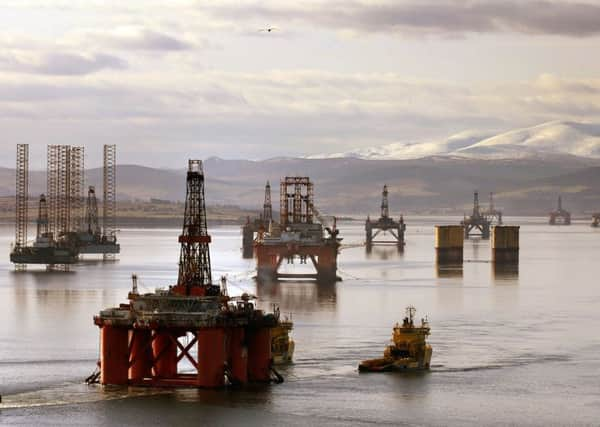Bob Ruddiman: Welcome progress for decommissioning relief
This article contains affiliate links. We may earn a small commission on items purchased through this article, but that does not affect our editorial judgement.


At least we can be confident there will be no such reversal of the national assurance given in the same Budget to the North Sea oil and gas industry on decommissioning.
• READ MORE: Shell submits plan to decommission Brent field
In his spring Budget Statement, Hammond delivered what many in the industry have been calling for, confirming a review of the complex tax regime, which hangs albatross-like over the decommissioning costs associated with many of the mature oil and gas assets that populate the UK continental shelf (UKCS).
Advertisement
Hide AdAdvertisement
Hide AdOn Monday, the Treasury will publish a formal discussion paper on the tax issues for late-life oil and gas assets, and for the first time detail the perceived barriers to the transfer of platforms and infrastructure. An expert panel of upstream oil and gas experts will be set up to consider issues, while the most frequently raised problems from a stakeholder perspective will help shape the government’s view on whether changes to tax rules would stimulate late-life asset trades.
In tandem, the government has laid down a statutory instrument that will extend the definitions of investment expenditure to certain categories of operating and leasing expenditure, to encourage further investment in UKCS, while broadening the scope of investment and cluster area allowances, with subsequent economic benefits backdated to October 2015.
According to the latest Western Europe Decommissioning Market Forecast published by energy research specialists Douglas-Westwood, the UK decommissioning spend is forecast to total £47 billion over 2017-2040, with over 300 platform removals. It is thought that around 50 per cent of the overall UK spend will be borne by the taxpayer. With those kind of eye-watering figures, it’s plain to see why Hammond is keen to delay decommissioning for as long as possible and to extract every viable barrel of North Sea oil and gas.
Historically, vendors of assets typically sought to pass the decommissioning liability to the new owner. There is, however, a new breed of operator which, aided by improved technologies, is better-placed to extract difficult-to-access oil and gas reserves, but there are several blockages that have deterred asset-acquisition from the large majors.
One sticking point is that a complex ownership history of mature assets offers little encouragement to new entrants to the UKCS who will not benefit from tax concessions and fear being landed with the eventual decommissioning burden.
We are now living in a lower-for-longer or lower-for-ever world, depending on your view, and with that has come a greater realisation that existing owners might need to retain a degree of responsibility for the decommissioning.
The view I put forward to the Treasury is that while there will be a natural desire to create a perfect solution that tracks down every pound of tax relief allocated to-date to North Sea assets, that probably will not be possible and a pragmatic solution is needed. That may require a change in mindset with UK plc believing decommissioning relief will unlikely be a perfect match between asset and owner, that the government has already had the benefit of the tax paid for these mature assets, and that bridges must be built to let the North Sea see out its days.
Advertisement
Hide AdAdvertisement
Hide AdThe industry has been working hard to drive efficiency improvements, for example, and while it’s true we have seen a recent uptick in E&P acquisitions and divestitures, if the decommissioning relief issue is not tackled now, we risk stifling production in the North Sea.
It’s refreshing to see progress is finally being made with a commitment by the Chancellor to deliver his findings in time for the Autumn Statement.
• Bob Ruddiman is head of energy at legal firm Pinsent Masons